Q-Cloud Is Now Available! | |
| January 21, 2025 | |
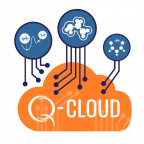
| Q-Chem is pleased to announce the release of Q-Cloud! Q-Cloud is a new product that allows users to run Q-Chem on AWS cloud computing architecture. Cloud computing offers many benefits over traditional computing models, including flexible resource scaling; reduced infrastructure, support, and maintenance costs; ongoing access to the most cutting-edge technology; and improved energy efficiency. |
Q-Chem 2024 Developer Highlights | |
| January 1, 2025 | |

| Happy New Year from Q-Chem! As we welcome 2025, we want to celebrate the accomplishments of our Q-Chem developers over the past year. We have compiled a list of highlighted journal publications from Q-Chem developers in 2024; check them out to discover what some of our developer groups have been working on! Please note that the list below is not comprehensive, so if you would like to see a specific journal article highlighted on this list, please reach… Read More |
2024 Q-Chem Developer Workshop | |
| December 16, 2024 | |
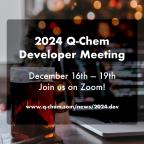
| The 2024 Q-Chem Developer Workshop took place virtually from December 16—19th, in half-day-long sessions. This free workshop was open to all Q-Chem developers regardless of experience, and provided an introduction to developing in Q-Chem. Topics included introductory materials for beginners (proper use of debuggers, tips for troubleshooting compilation errors, and the Q-Chem development cycle), as well as materials for more advanced developers (how… Read More |
John Herbert Elected ACS COMP Chair 2026 | |
| November 22, 2024 | |

| Congratulations to Q-Chem board member Prof. John Herbert on being selected as the Chair 2026 (2025 Chair-elect) of the ACS COMP Division! This division serves a diverse community of chemists who are interested in a broad range of theoretical chemistry applications. They encourage education, mentorship, and career-building, and they support scientific communication, collaboration, and outreach among computational chemists. To learn … Read More |
Q-Chem 6.2.2 Is Here! | |
| November 21, 2024 | |
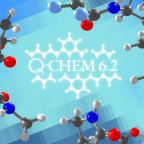
| Q-Chem is pleased to introduce our latest release, Q-Chem 6.2.2. It includes several bugfixes and improvements to the recent 6.2 release, and an official version for Mac computers with Apple silicon is now available! For a full list of updates, fixes, and resolved issues, please review the full 6.2 release log here. We also have a new release log that provides significantly more details on default and printing changes that may… Read More |
Q-Chem's Annual Sale is Here! | |
| November 1, 2024 | |

| The holidays are almost upon us, and you know what that means: It's time for Q-Chem's annual sale! Get a 12% discount on all license orders and license upgrades placed directly with Q-Chem (not through resellers) before December 31, 2024. Don't miss out on this chance to save on a copy of our latest release! Contact us for a quote today! |
Now Available: A New Parameterization of the DFT/CIS Method with Applications to X-ray Spectroscopy | |
| October 24, 2024 | |

| Our latest Q-Chem webinar (Webinar 77), which was presented by Aniket Mandal on October 24, is now available! You can view the archived recording of the webinar here. Time-dependent density functional theory (TD-DFT) within a restricted excitation space is used as an efficient and reasonably accurate means to compute core-level spectra, using only a small subset of the occupied orbitals in what is known as the core/valence separation approximation. TD-DFT… Read More |
Q-Chem Developer Ka Un Lao Wins ACS COMP Outstanding Junior Faculty Award | |
| October 23, 2024 | |

| Congratulations to Q-Chem developer Prof. Ka Un Lao, of Virginia Commonwealth University, on being awarded the prestigious ACS COMP’s OpenEye Cadence Molecular Sciences Outstanding Junior Faculty Award! He is the first-ever recipient of all three ACS COMP awards (he also received the Excellent Graduate Student Award in 2015 and the Outstanding Postdoctoral Award in 2018).… Read More |
2024 Fall Q-Chem Workshop | |
| October 13, 2024 | |

| The 2024 Fall Q-Chem User Workshop took place in person on the morning of October 13th from 9AM to 1PM at Huanghai Hotel, before the beginning of the ISTCP conference in Qingdao, China. This free workshop provided an introduction to several basic features within the Q-Chem software package, and included several hands-on exercises using IQmol, Q-Chem's free molecule visualizer and job server. |
Call For Nominations: 2025 Michael Wormit Award | |
| October 9, 2024 | |
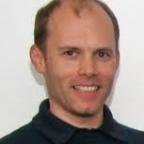
| Q-Chem is now accepting nominations for the 2025 Michael Wormit Award! This award recognizes excellence in the development of new methods and algorithms in the area of electronic structure, and implementation within the Q-Chem open teamware community project. The award includes a certificate and $500 prize, as well as an invitation to present a special Q-Chem webinar on the recipient's work. It commemorates the contributions of Dr. Michael Wormit, who is remembered for his state-of-… Read More |
Upcoming Webinar: Nuclear–Electronic Orbital ab initio Wave Function Methods in Q-Chem |
| July 17, 2025 |
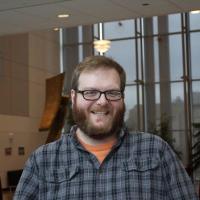
|
Don't miss our next Q-Chem webinar, Nuclear–Electronic Orbital ab initio Wave Function Methods in Q-Chem, happening on July 17th at 10AM PDT.… Read More |
Q-Chem Developer Thomas Jagau Receives CMOA Award |
| July 15, 2025 |
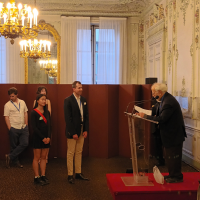
|
Congratulations to Q-Chem developer Prof. Thomas Jagau on receiving the Promising Scientist Prize of Centre de Mechanique Ondulatoire Appliquée at the… Read More |
Justin Talbot — 2025 Besley Award Winner |
| July 11, 2025 |

|
The winner of the 2025 Nick Besley Award is Prof. Justin Talbot! The award committee is delighted to recognize him for his excellent contributions towards the computational vibrational… Read More |
Mathew Chow — 2025 Wormit Award Winner |
| July 11, 2025 |

|
The winner of the 2025 Michael Wormit Award is Mathew Chow! He is recognized for his outstanding work as a Q-Chem developer, particularly his work developing nuclear-electronic orbital (NEO)… Read More |
Q-Chem Developers Elected To WATOC Board |
| July 1, 2025 |
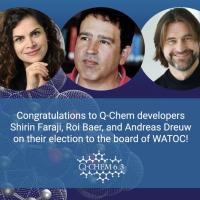
|
Congratulations to Q-Chem developers Shirin Faraji, Roi Baer, and… Read More |